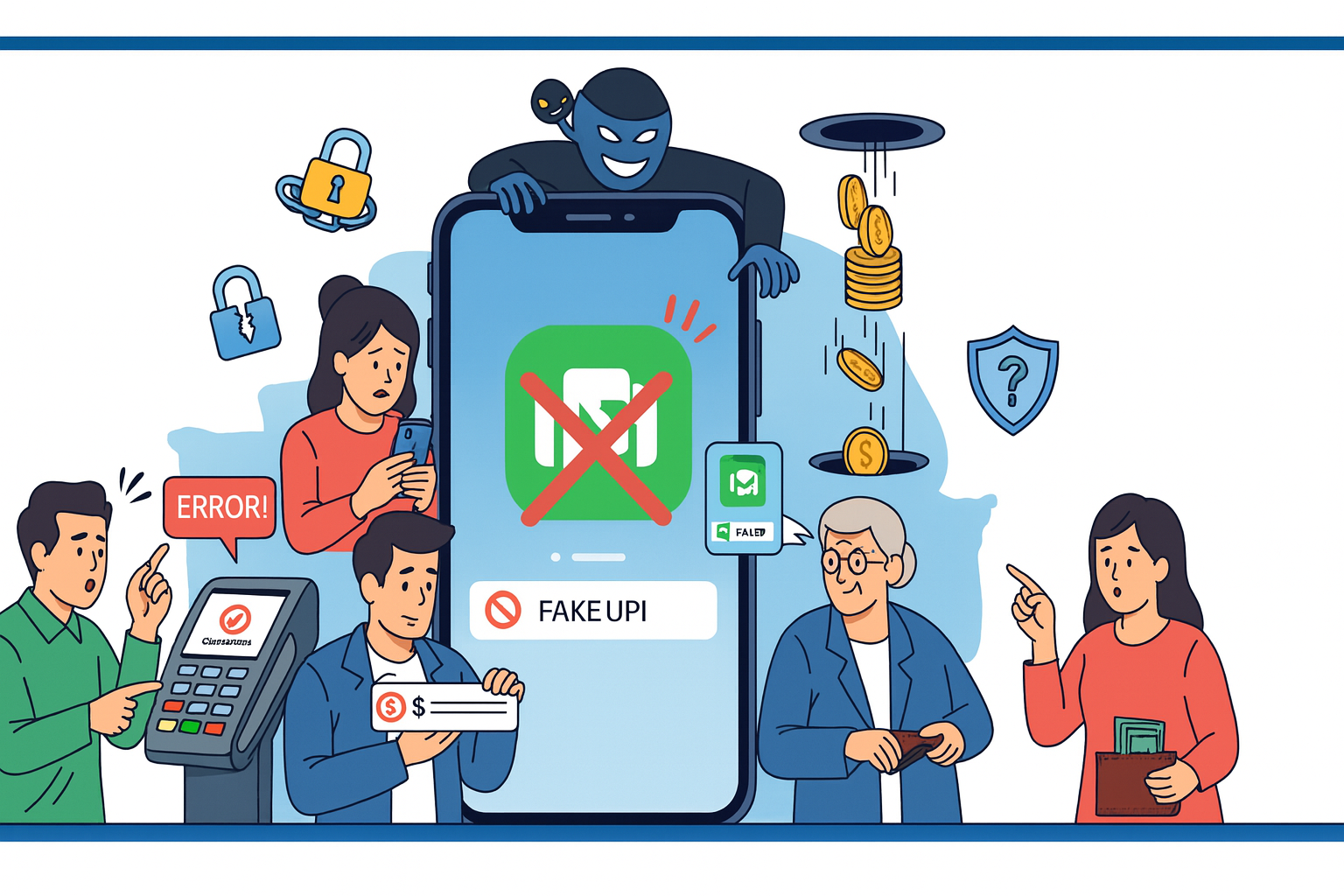UPI has made payments fast, easy, and secure, but with convenience comes the risk of fraud. One of the most common issues businesses face today is fake UPI payment alerts. These are scams where fraudsters trick merchants into believing a payment has been made, even though no money has actually been transferred.
Understanding these risks helps businesses stay alert and avoid losses. Here’s a simple explanation of how fake payment scams work and what dangers they bring.
Loss of Money Due to False Confirmations
Scammers often show:
- Edited screenshots of “successful” payments
- Fake SMS alerts
- Fake UPI app pages
If a business hands over products or services based on these false proofs, they suffer a direct financial loss.
Misleading Notifications
Fraudsters may use fake apps that generate payment notifications.
- These look real at first glance
- The merchant believes the transaction is complete
But the actual bank account shows no payment received. This creates confusion and leads to disputes.
Social Engineering Attacks
Scammers may try to trick shop owners by creating urgency.
- They pretend the payment is stuck
- They claim the money will reflect “soon”
- They pressure the merchant to complete the order
This emotional manipulation is a common fraud technique.
Fake Payment Apps
Some people use modified or unofficial apps that imitate real UPI apps.
- These apps generate fake transaction IDs
- They show false success messages
Businesses that don’t cross-check the bank notification are at high risk.
Trust and Reputation Damage
If a shop repeatedly faces issues related to fake payments:
- Staff may become overly suspicious
- Genuine customers may feel uncomfortable
- It creates friction during checkout
This affects customer experience and overall business trust.
Operational Delays
When payments seem uncertain:
- Staff must re-check every transaction
- Time gets wasted during peak hours
- Long queues form
This slows down operations and reduces efficiency.
Increased Stress on Business Owners
Constant worry about fraud creates mental pressure.
- Owners feel unsafe accepting digital payments
- They may avoid quick transactions
- This reduces the benefits of using UPI.



